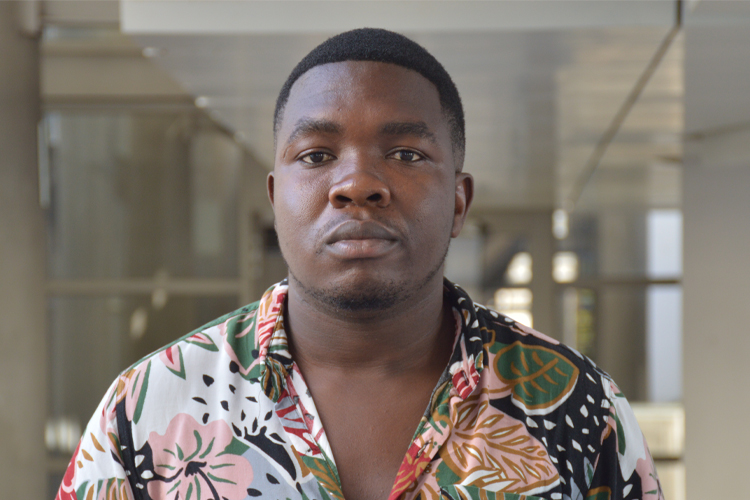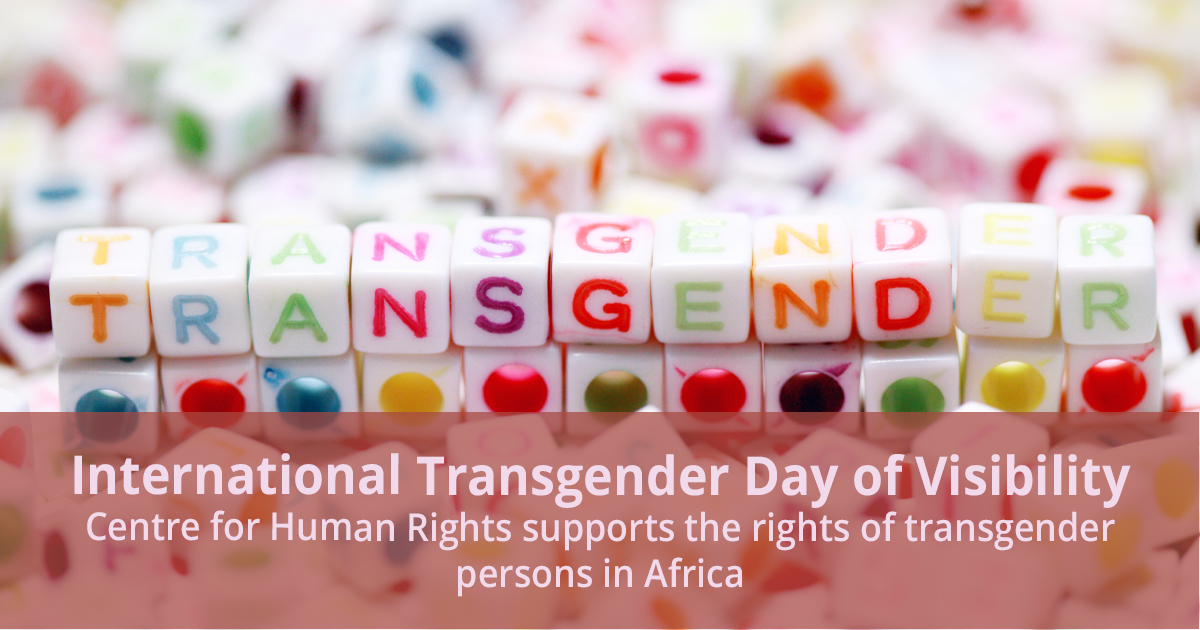International Transgender Day of Visibility is celebrated globally on the 31st of March every year. International Transgender Day of Visibility celebrates the existence and achievements of transgender persons and seeks to raise awareness of the discrimination experienced by the trans community. Transgender persons have been at the forefront of LGBTIQ+ communities’ struggles and activism and have contributed to the collective human endeavour in fields as diverse as science, law, philosophy and the arts. Unfortunately, transgender persons in Africa and across the world experience a plethora of human rights violations that have not been effectively addressed, such as transphobic killings, inaccessibility to healthcare, lack of legal recognition and exclusion from public areas of life, such as sports and media. Increasingly, there are attempts to portray trans inclusion as anti-feminist, a move which must be rejected as bad faith and ill-informed. The Centre for Human Rights stands by the principle that human rights are universal and inalienable, indivisible, interdependent and interrelated.
The Centre for Human Rights reaffirms the inherent human dignity and equality of transgender persons, who, like all of us, are entitled to the full scope of human rights. The Centre stresses the importance of taking steps to safeguard the lives, health and dignity of transgender persons in Africa and all over the world. Additionally, more effort should be made to spotlight transgender persons who continue to make strides in their respective fields and those who continue to proudly navigate their way through a society that does not respect their full humanity. Issues affecting transgender people in Africa and other parts of the world must be addressed urgently to ensure that trans persons are able to exist safely, participate fully in society, and access the services they require to live dignified, satisfying lives.
As a part of its commitment, the Centre actively supports the implementation of the University of Pretoria (UP) Trans Protocol which seeks to respond to the needs of trans, intersex, gender non-conforming and non-binary staff and students by creating a framework that provides for recognition, psychosocial support and special leaves of absence for addressing healthcare needs. The UP Trans Protocol is the first of its kind in South Africa and the African continent. More information on the protocol can be found here while other useful information on trans awareness is provided here.
The Centre for Human Rights is proud to celebrate the rights and lives of transgender persons in Africa and to continue promoting the development of programmes to improve trans person’s access to human rights.
For more information, please contact:

Tel: +27 (0) 12 420 3151
Fax: +27 (0) 86 580 5743
ayodele.sogunro@up.ac.za

Tel: +27 (0) 12 420 3151
Fax: +27 (0) 86 580 5743
nathan.milanzi@up.ac.za


